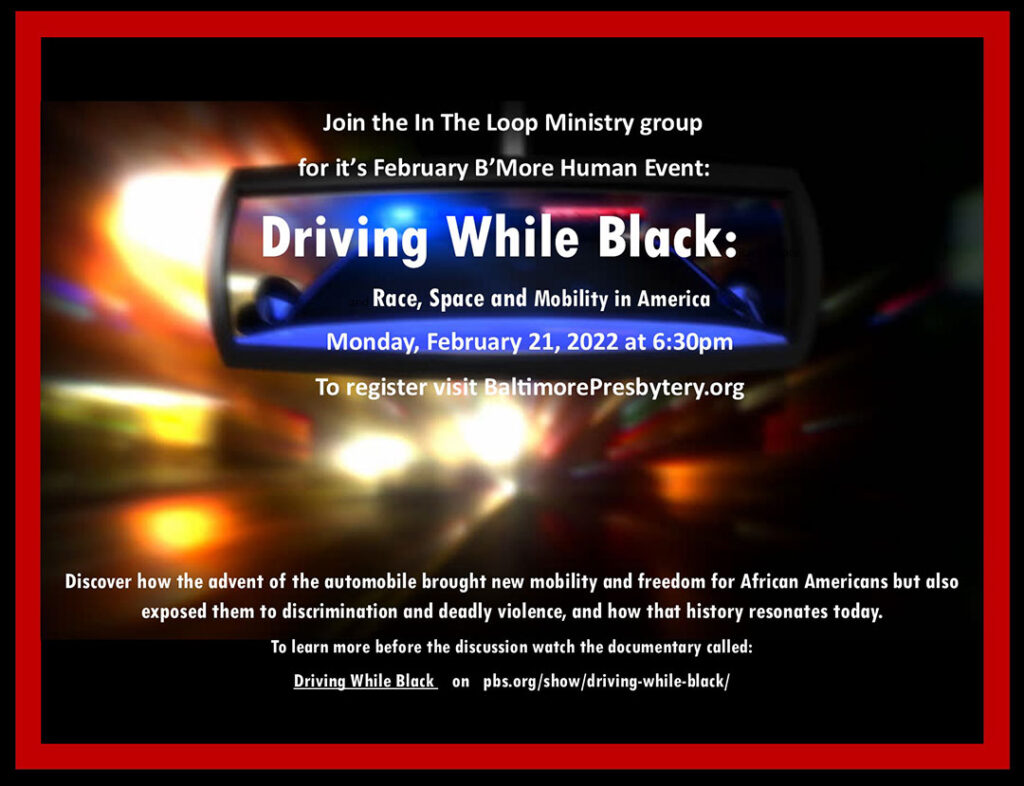A B’More Human discussion organized by the In The Loop ministry group: February 21, 2022
The ability of Black Americans to travel was severely restricted during slavery, when leaving the plantation required a written pass (that often could not be read by the pass holder because of prohibitions against Blacks being taught to read). Slave codes prohibited traveling without permission. At night, Slave patrols would enforce that slaves’ travel prohibitions because of fears for slaves meeting to plan rebellion or running away. Consequences for not having such a pass could be severe, though not usually fatal because slaves were considered to valuable as property. Following he Civil War and the abolishment of slavery, similar oppressive rules were established listed as Black Codes, designed to disenfranchise and continue to subjugate Blacks.

Unjust and dehumanizing practices persist to this day. Throughout the decades following the Civil War, through reconstruction, Jim Crow, Civil Rights era and even now, there are infamous incidents of Blacks being killed for being in the ‘wrong’ place or driving a car that was felt to be ‘above their means, or ‘station’’, now referred to as ‘driving while Black’, indicating that usually for no other reason , other than being Black, tragic outcomes could occur. ABC News reports that there have been more than 400 people killed during traffic stops in the past 5 years, where no crime or weapon was involved in stop or pursuit. Daunte Wright’s license plates were expired. He’s dead. Saundra Bland changed lanes without signaling. She’s dead. Philando Castile ‘looked like someone committing a robbery’. He’s dead.
A recent Politico article, entitled, “Driving While Black is Still a Death Sentence”, talks about the racial profiling of Black motorists and overreach during routine traffic stops. Some of those stops, questioned as even as being warranted, often result verbal, psychological and physical abuse or injury, arrest, and, ultimately, release without charges. Sometimes they result in death.
On February 21, 2022, the ITL B’More Human Series will explore this phenomenon.
